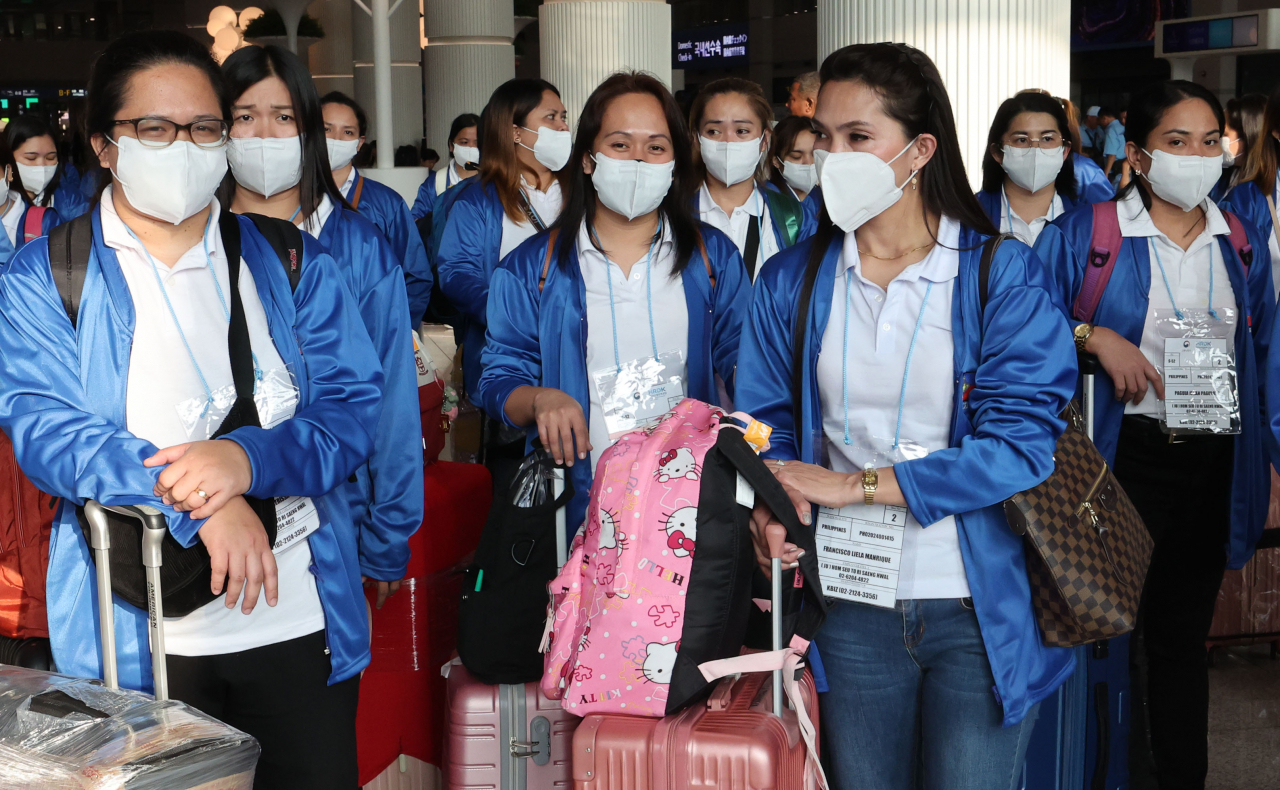New Orleans DA seeks legal immunity in fake subpoena case.
Recently in Jurisprudence
- The Prosecution Actually Wants the Jury to Think Michael Cohen Is a Pathetic Scumbag
- Why the Right’s Mythical Version of the Past Dominates When It Comes to Legal “History”
- Trump’s Government-in-Waiting Shared Their Plans for the Death Penalty. It’s Terrifying.
- A State Supreme Court Justice Decries the “Horrors and Treachery” Coming From SCOTUS
On Nov. 27, 2016, a New Orleans police officer handed Tiffany Lacroix a piece of paper that was titled “subpoena,” instructing her to meet with then–New Orleans Assistant District Attorney Laura Rodrigue. At the top, the document warned, “A fine and imprisonment may be imposed for failure to obey this notice.”
But that piece of paper wasn’t a legally issued subpoena, which would have required a judge’s signoff. It was one of the many fake subpoenas issued by the DA’s office, a tactic that even the New Orleans District Attorney Leon Cannizzaro himself now agrees was an “improper” method used to pressure witnesses to meet with prosecutors and provide evidence. Lacroix challenged the validity of the fake subpoena and won. The office stopped using the fake subpoenas shortly after they were exposed to the public.
Shortly after this practice became publicly known, thanks to an investigation by the Lens, the ACLU and Civil Rights Corps brought a civil rights lawsuit against the New Orleans District Attorney’s Office and 11 individual prosecutors, including Rodrigue, alleging that their clients—all individuals who were served fake subpoenas, some of whom were jailed as material witnesses as a result—were victims of a district attorney’s office already known for concealing evidence, prosecuting witnesses who tried to come forward with the truth, and doing pretty much anything else in the quest to win.
AdvertisementNow, more than two years after the original lawsuit was filed, Cannizzaro’s office is trying to wriggle out of taking responsibility for admittedly “improper” acts.
On Wednesday, the New Orleans District Attorney’s Office argued before the 5thU.S. Circuit Court of Appeals that, contrary to the district judge’s view, they can’t be held liable for the illegal subpoenas, even if they knew that they were wrong at the time. The office claims that prosecutors have absolute immunity from civil lawsuits, meaning that they cannot be sued for bad acts the same way law enforcement officers and other public officials can. This argument relies on a doctrine that’s been propped up by the Supreme Court, which has held over and over again that prosecutors aren’t like anyone else.
Advertisement Advertisement Advertisement AdvertisementThe U.S. Supreme Court first invented the doctrine of prosecutorial immunity in the 1976 decision in Imbler v. Pachtman, which made the issue of prosecutorial immunity dependent on types of conduct rather than intent.* Imblerset the rule that prosecutors cannot be held liable for any acts done as “advocates for the state.” Justice Lewis Powell, who wrote the opinion, went on to say that prosecutors could nevertheless be held liable for “administrative duties and … investigatory functions.”
Paul Imbler was charged with first-degree felony murder and was sentenced to death in a Los Angeles court based largely on eyewitness accounts. After Imbler’s conviction, the lead prosecutor himself wrote to the California Supreme Court and argued that there was evidence that Imbler’s alibi was correct and that at least one of the witnesses was unreliable. This was not enough to overturn Imbler’s death sentence until a federal court looked at the evidence and set Imbler free. He then sued law enforcement and the prosecutor for concealing evidence at his trial.
AdvertisementIn their decision, the court found that individual prosecutors needed absolute immunity from civil suits in prosecution decisions because “harassment by unfounded litigation would cause a deflection of the prosecutor’s energies from his public duties, and the possibility that he would shade his decisions instead of exercising the independence of judgment required by his public trust.” But Powell allowed when prosecutors acted like law enforcement officers through investigation, they should not have absolute immunity, but only “a good faith defense.”
AdvertisementThe Supreme Court strengthened this largely bulletproof immunity in the case of John Thompson, who was sent to death row by the New Orleans’s District Attorney’s Office for a murder he did not commit because the office intentionally hid evidence proving Thompson was innocent. In a civil jury trial against the DA’s office, Thompson won a $14 million verdict. But, in an extraordinarily cruel twist, the Supreme Court, in a decision written by Justice Clarence Thomas, reversed Thompson’s success at trial and held that the district attorney could not be held liable for failing to train his lawyers to follow the law. Thompson spent 18 years on death row and died in 2017.
Advertisement AdvertisementA 2011 Yale Law Review article points out that the Thompsonholding was a huge blow for prosecutorial accountability because it “forecloses one of the few remaining avenues for holding prosecutors civilly liable for official misconduct.” Beyond that, the Thompsonholding is an example of the federal judiciary inventing doctrines out of whole cloth at the behest of local officials who seek immunity for violating the civil rights of their citizens. While it may have made sense at one point to give prosecutors immunity for making decisions in the heat of trial—although police officers are not given such luxuries despite the difference in job description—with 94 percent of state criminal cases resolved with a guilty plea, it’s hard for prosecutors to maintain that they should have free rein to do as they wish.
Advertisement Advertisement AdvertisementTo get around this sweeping immunity, the plaintiffs made two main arguments in the 5thCircuit. First, the plaintiffs argue that the fake subpoenas fall into the narrow exception Powell provided to prosecutorial immunity—that the prosecutor is “investigating” rather than “prosecuting.” The strength of this argument may depend on the eye of the beholder. Is interviewing a witness you might call to the stand “investigating?” Or is it “trial preparation?”
At the hearing, the 5thCircuit judges appeared interested in the second rationale, which also persuaded the district court Judge Jane Triche Milazzo: the fake subpoenas are so outrageous that they are clearly outside the bounds of blanket immunity. Milazzo, in her decision refusing to dismiss the claims related to the fake subpoenas, described them as “systemic fraud” that immunity was not ever intended to support; she went on to explain that Cannizzaro’s office’s arguments “grant prosecutors a license to bypass the most basic legal checks on their authority.” This seems to indicate that there are bounds to immunity.
Advertisement AdvertisementDuring the argument on Wednesday, a judge asked Cannizzaro’s office skeptically whether immunity would cover forging a judge’s signature on a subpoena. The prosecutor’s office said it would.
AdvertisementAside from the unconstitutionality of the general practice, Molly Kovel, a senior staff attorney at the ACLU, said that she is worried that her clients, many of whom are sexual assault and domestic violence survivors, are still subject to arrest and prosecution, after being harassed and endangered under false pretenses. This isn’t an unprecedented fear. The New Orleans District Attorney’s Office has prosecuted a witness who recanted testimony that led to a wrongful conviction and defense investigators for doing their job. It’s an office that has long operated on terror and misinformation, using the shield of immunity to guide its “win-at-all-costs” culture. But, Kovel noted, the judiciary has given the New Orleans DA no reason to change their ways: “Even though the defendants are behaving shockingly—no one is suggesting the fake warrants are OK—a judicially created doctrine leads them to think that they are wholly without accountability.”
Correction, Feb. 6, 2020: This article originally misidentified the case Imbler v. Pachtmanas Imbler v. Patchman.
Tweet Share Share Comment相关文章

Keurig K Mini deal — get $30 off at Target
GET $30 OFF:As of Aug 28, you can snag a Keurig K Mini single-serve coffee maker for just $59.99, do2024-09-22 全国示范!揭西这家企业荣登上榜_南方+_南方plus在第六个中国农民丰收节即将到来之际,揭西收获了一项国家级荣誉。9月18日,全国农技中心公布第二批百个全国农作物病虫害绿色防控示范推广基地名单,揭西县2024-09-22
全国示范!揭西这家企业荣登上榜_南方+_南方plus在第六个中国农民丰收节即将到来之际,揭西收获了一项国家级荣誉。9月18日,全国农技中心公布第二批百个全国农作物病虫害绿色防控示范推广基地名单,揭西县2024-09-22 7日,熊忠军和老伴查看白芨长势。在石棉县永和乡大林村4组海拔1100米的中高山地带,坐落着一个被药材地包围的养殖场,养殖场内,80余只长相奇特的豪猪茁壮生长。这里,便是今年61岁贫困户熊忠军的致富基地2024-09-22
7日,熊忠军和老伴查看白芨长势。在石棉县永和乡大林村4组海拔1100米的中高山地带,坐落着一个被药材地包围的养殖场,养殖场内,80余只长相奇特的豪猪茁壮生长。这里,便是今年61岁贫困户熊忠军的致富基地2024-09-22 雅安日报/北纬网讯11日,我市“爱尚杯”羽毛球(团体)邀请赛在经开区落下帷幕。本次邀请赛由市体育总会主办,市羽毛球协会承办,活动吸引了市直机关单位、县区学校等200余名羽毛球爱好者参加。此次团体比赛设2024-09-22
雅安日报/北纬网讯11日,我市“爱尚杯”羽毛球(团体)邀请赛在经开区落下帷幕。本次邀请赛由市体育总会主办,市羽毛球协会承办,活动吸引了市直机关单位、县区学校等200余名羽毛球爱好者参加。此次团体比赛设2024-09-22
Ruling bloc divided on foreign nannies' pay
A hundred Filipina domestic helpers arrive at Incheon Airport on Aug. 6. (Pool photo via Yonhap)Sout2024-09-22 嗦大虾、玩非遗、游歌舞.....看高要“丰”景里有什么?_南方+_南方plus岁在癸卯,时序金秋三节喜连,普天同庆稻菽丰稔,鱼虾肥美我们不仅听到了丰收的脚步声声更看到汗水浇灌的土地开始变化了模样春夏的2024-09-22
嗦大虾、玩非遗、游歌舞.....看高要“丰”景里有什么?_南方+_南方plus岁在癸卯,时序金秋三节喜连,普天同庆稻菽丰稔,鱼虾肥美我们不仅听到了丰收的脚步声声更看到汗水浇灌的土地开始变化了模样春夏的2024-09-22

最新评论